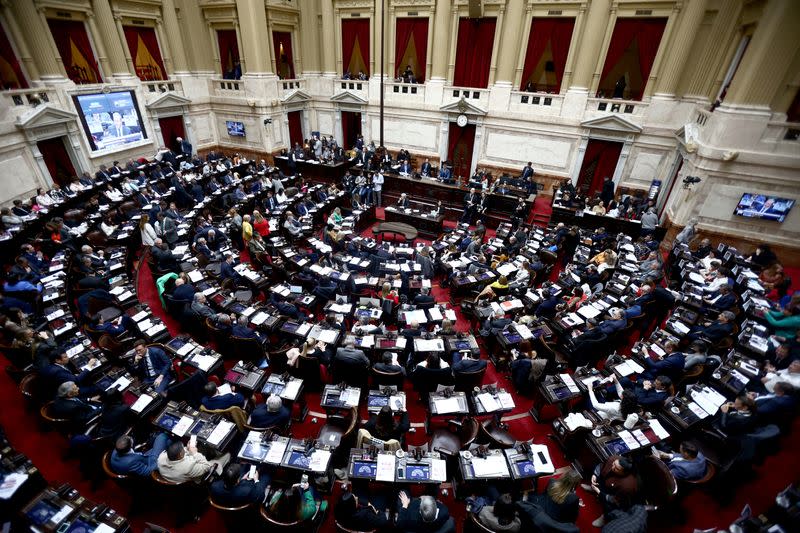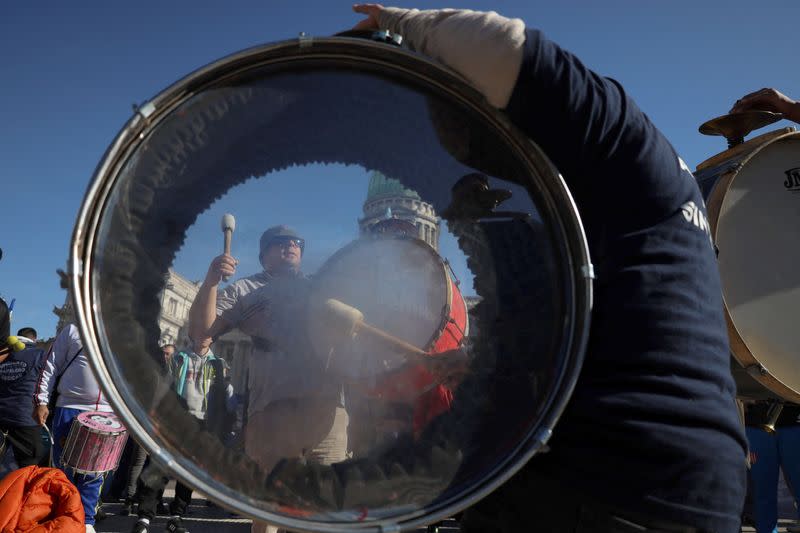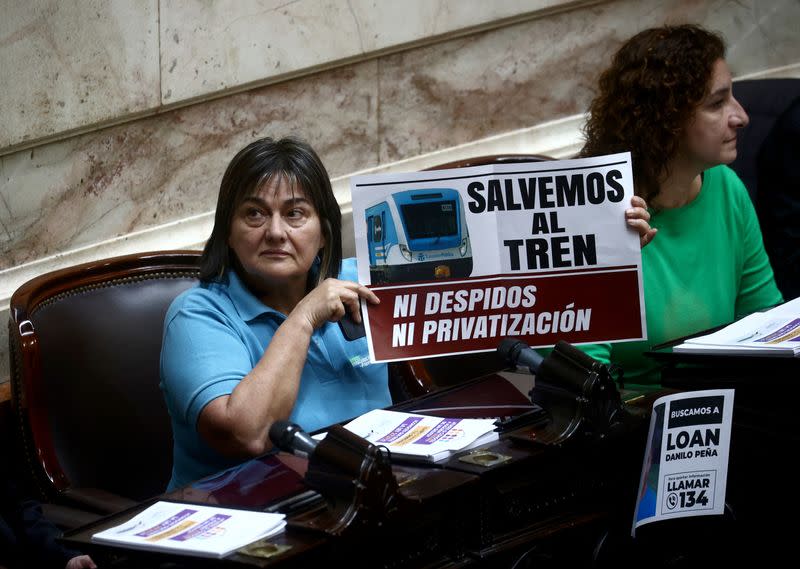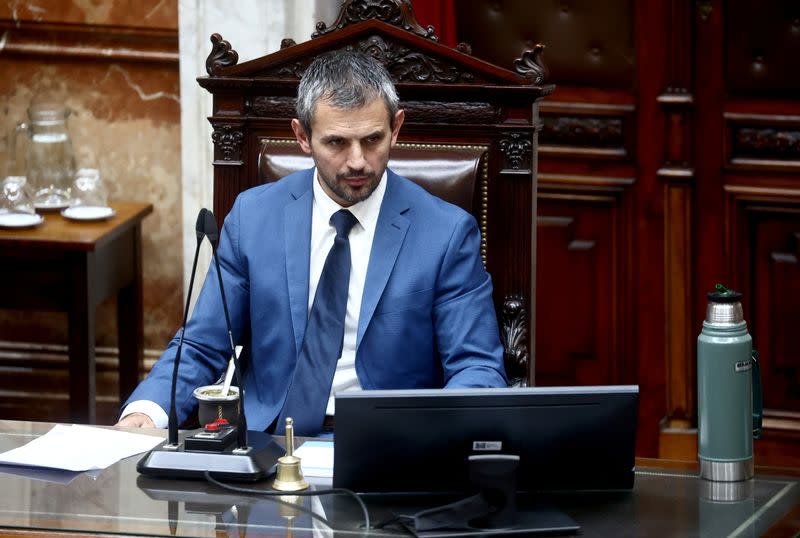Argentina passes economic reform bill in Milei's first big legislative win
By Nicolás Misculin and Natalia Siniawski
BUENOS AIRES (Reuters) -Argentina's lower house early on Friday approved economic reform measures proposed by President Javier Milei, giving him his first big legislative win just over six months after taking office.
The approval also included a fiscal package which reintroduced articles on income tax and personal assets that the Senate had previously rejected.
The final discussions regarding Milei's primary reform bill and its fiscal counterpart began on Thursday in the Chamber of Deputies. With initial approval already secured, the focus of the debate was on agreeing final details before the measures become law.
The approved legislation, which offers investment incentives, addresses the privatization of numerous state-owned entities and overhauls taxes, should help Milei achieve some of the main goals he has set his administration.
The right-wing libertarian was elected last year on a promise to reform the country's struggling economy.
In a social media post, the government celebrated the approval of the economic reforms, criticizing the opposition and its "usual accomplices" for delaying the project for months.
The two bills have undergone significant changes since the government's initial drafts as Milei had to negotiate to win support in Congress, where his party holds only a small minority of seats.
"It has suffered a significant pruning if you look at the original bill," local investment firm Wise Capital said. "But the ruling party is going be able to get approved a framework that allows it to implement the measures it considers necessary to rebuild the Argentine economy."
Milei, who inherited an economic mess with triple digit inflation, negative net foreign currency reserves and a sliding economy, has focused hard on getting the state's finances in order with tough austerity. He's had success tamping down price rises, rebuilding reserves and posting a fiscal surplus, though the economy has been hit hard.
Following initial approval by deputies in April and senators earlier this month, the lower house voted on the Senate's amendments. It accepted a truncated list of state firms for privatization and changes to the investment incentive plan.
The government has reinstated some clauses on taxation and personal assets previously removed by the Senate, which the Chamber of Deputies now approved in a 136-134 vote.
In response to the reforms, center-left opposition legislators have hinted that they may challenge specific laws in court on the grounds of unconstitutionality.
OPINIONS DIVIDED
Argentines on the street are divided.
Samanta Monrroi, a 34-year-old worker in Buenos Aires, was concerned about the tax changes and the investment plans.
"It's a regimen where firms can come, take what they want and leave absolutely nothing behind for our country," she said.
Nicolás Lio, a 34-year-old medical representative, said he didn't agree with all of the bill, but that it was needed after years of economic crisis and rising inflation.
"It seems necessary to me. There are things that are not going to be great for us but they are things we have to roll up our sleeves and get done," he said.
"We have to adjust in some way and see the light at the end of the tunnel by the end of the year. As things were, it was impossible to continue."
(Reporting by Nicolas Misculin and Natalia Siniawski; Additional reporting by Walter Bianchi and Miguel Lo Bianco i; Editing by Adam Jourdan, Peter Graff and Timothy Heritage)






